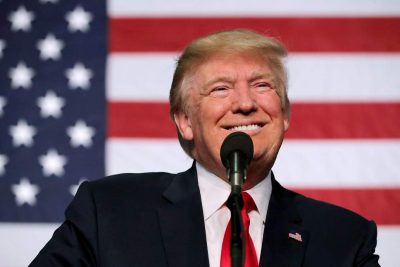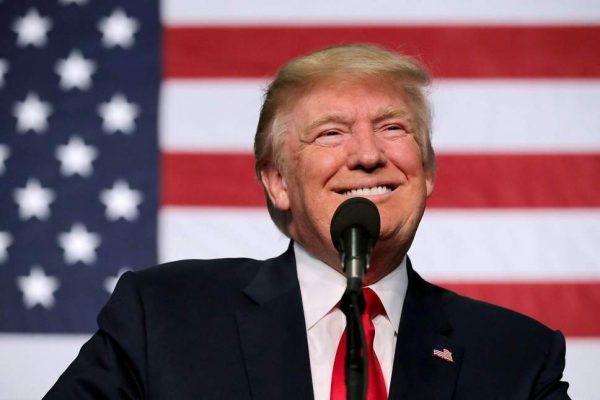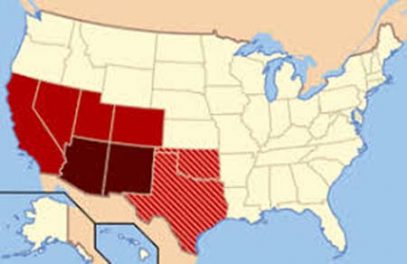NEW YORK, NY – It was a midterm election with an unexpected loss of control of the House of Representatives by Republicans in spite of President Donald Trump’s intensive campaigning to win as many seats as possible. But Democrats regained control, garnering 235 of the total 435 seats in this branch of the United States Congress. Republicans however retained control of the Senate with 51 of the 100 seats, with 47 Democrats and 2 Indepe3ndents.
Several factors led to the Democrats’ victory in the House including changed or changing perceptions by voters of President Trump’s leadership, actions, and remarks on his policies on various issues in his campaign speeches, news conferences, and television interviews. Pervasive global presence of US media has also led to a changing world view of this country and its leader.
In a recent Pew Research Center survey on how the US and President Trump are perceived around the world, Filipinos gave the second highest preference rating among 25 nations, to the United States as their preferred ‘world leader’ rather than China.
More than three-quarters of the Filipino respondents (77 percent) filled in ‘US’ rather than ‘China’ in this statement: “Having __ as the world’s leading power would be better for the world.” The other 12 percent filled in China as their preference, and the reaming 11 percent volunteered ‘both’ or ‘neither’ as their answers. Other nations with the highest preference score for the US, all in the 70s, were Australia, Canada, Netherlands, South Korea, and Sweden.
Among all nations polled, the median preference score for the US was 63 percent as being a leading power that would be better for the world. China on the other hand, scored just 19 percent on this question. Surprisingly, Tunisians gave China the highest preference score, with 64 percent favoring it as being better for the world as a leading power than the US. But not surprisingly, Russians gave the US its lowest preference rating – just 13 percent.
We live in a community of nations. So it is important, in my view, that Filipinos get a broad view of what people in other countries are thinking and saying about the US and President Trump. Without going into detail here due to lack of space, we summarize answers on major questions. The percentages don’t add up to 100 because some gave no response They varied greatly depending on the world region and the respondent nation polled:
- Western Europeans have a strikingly negative view of Trump: It remains low in four countries of the European Union, with Spain, France, Germany and the United Kingdom responding with scores of 7,9,10, and 28 percent respectively. Of the 25 countries surveyed, a median of 70 percent said they lack confidence in Trump to do the right thing.
- Views of the US are favorable on balance, but concerns are evident. Among the 25 countries surveyed, a median 50 percent have a favorable opinion of the US, whereas 43 percent hold an unfavorable view. A median 51 percent stated that the US respects human freedoms while 37 percent say it does not.
- People in other nations have long said that the US does not take the interests of their country into account when making international policy decisions. A large 72 percent of the nations surveyed said this, whereas only 27 percent said it does.
- The US received some of its highest favorability ratings in Asia. Filipinos gave an 83 percent favorability rating (the same as Israelis) along with a high 80 percent of South Koreans responding favorably.
Why did the US receive an overall favorable rating in this poll, particularly with respect to it as being viewed as one that respects individual liberties? It is also not surprising that that America was seen by most nations as being the world’s leading economic power, particularly in Asia-Pacific countries and all three South American nations polled: Argentina, Brazil, and Mexico.
With Trump elected President in November 2016 and Republicans in control of the Congress, onerous government regulations obstructing business revenue advancement have been abolished, the official national unemployment rate has plunged to just 3.7 percent (lowest since 1969), and the highest corporate income tax rate has been substantially cut from 35 percent to 21 percent. Pending is a bill that will provide income tax relief to the middle class.
These actions have led to the US gross domestic product reaching an annualized 3.5 percent growth rate in the third quarter of 2018. So the current overall positive view of the US in this 25-nation survey as the world’s leading economic powerhouse (with the strongest military capability now) is not at all surprising.
Most of you are still wondering which nation gave the highest marks to the US in preferring it rather than China, as being better for the world. It was Japan, with 81 percent of respondents in favor of the US.








